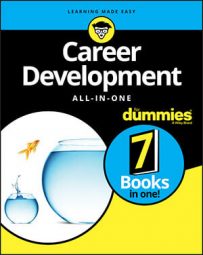Sometimes you have the information you need to assess and address a consideration and sometimes you don’t. Identifying and dealing effectively with information you need but don’t have can dramatically increase your chances for project success.
Unknown information falls into one of two categories:
- Known unknown: Information you know you need that someone else has
- Unknown unknown: Information you know you need that neither you nor anyone else has because it doesn’t exist yet
You deal with known unknowns by finding out who has the information you need and then getting it. You deal with unknown unknowns by using one or more of the following strategies:
- Buying insurance to minimize damage that occurs if something doesn’t turn out the way you expected
- Developing contingency plans to follow if something doesn’t turn out the way you expected
- Trying to influence what the information eventually turns out to be
You experience a different situation when you become aware that the person who managed the CRM program has left the job. As part of your Conducting a survey project, you need to have the new person work with the list and you’re concerned that he doesn't know that it's part of his job.
Whether or not the operator knows it's his job is an unknown unknown when you prepare the WBS for your project plan. You can’t determine beforehand that the first person would leave the company and the new one wouldn't be properly trained because it’s an unintended, unplanned act (at least you hope so).
Because you can’t find out for certain whether or not this occurrence will happen, you consider taking one or more of the following approaches to address this risk:
- Develop a contingency plan. For example, in addition to developing a scheme for the computerized selection of names directly from the original database, have the statistician who guides the selection of the sample develop a scheme for selecting names randomly by hand from the database.
- Take steps to reduce the likelihood that only one person knows what is going on with the CRM. For example, check with the department head to see whether another employees can be trained to run the CRM program.
Developing the WBS helps you identify a situation that may compromise your project’s success. You then must decide how to deal with that situation.

